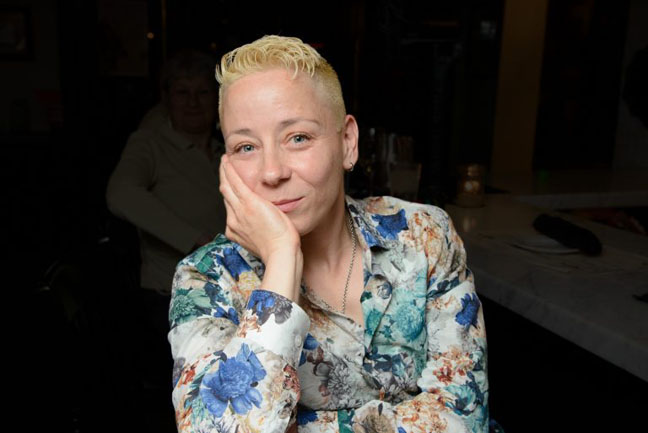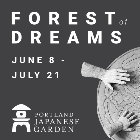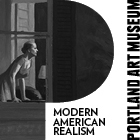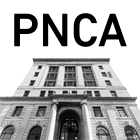
|
||
|
Portland art blog + news + exhibition reviews + galleries + contemporary northwest art
|
||
Meet RACC's new leader Madison Cario 
RACC (Regional Arts and Culture Council) and the main public granting agency has finally announced that they have chosen a new executive director, Madison Cario. Cario seems to have an easy, direct but informal way about them that should fit in well in Portland. As a former marine and someone who didn't grow up with arts and culture they seem well placed to inject the decisiveness the agency (which used the word "quirky" too much [even once is too much] and "excellence" hardly if ever in communications). Over the years artists have asked for a lot of reforms and to be sure some have been adopted but the sense is the agency aims too low in terms of ambition... coming off at least a decade or more behind the bleeding edge of Portland's very dynamic cultural scene. Luckily, Casio has been a curator (science and technology oriented visual arts even) and not just a bureaucrat. The question will be if they will merely implement token multiculturalism or if Cario can make the agency become a more important cultural ally in keeping Portland's cultural edge keen? Till now many of its practices have had a dulling effect as Portland likes to pat itself on the back without really challenging the status quo (some important art does make people uncomfortable). Most of our exhibitions institutionally try a little to hard to soften their criticisms, yet the sharpest artists themselves have a great deal of edge. I call this Portland's Artist/Institutional schism and RACC is central in this discussion. You can watch this video to get a sense of Cario: Contemporary Talks: Madison Cario from Jason Parker on Vimeo. Now with City Council calling for an arts affordability plan (it needs to be an arts sustainability and retaining/encouraging creative edge plan) RACC is crucial to executing that effectively. To do that the agency needs a lot of reforms that the cultural scene has calling for decades now. Here are a couple of things that really need to be looked at immediately: 1) Who are these grant panelists? Simply chosing better, more qualified panelists = better results. Also pay the panelists, one gets what they pay for. This is RACC's achillies heel. I havent sat on a RACC panel since 2004, yet I sit on national grant panels. 2) Better understanding of what kind of support impacts careers. Things like research and travel are undervalued. Understanding the level of research opportunities is crucial. No its not a class, meeting with top level experts in special locations is far better but panels repeatedly pass on one for the other. 3) Currently artists who have exhibitions at institutions that get major operational support grants from RACC cannot get project grants. Talking about places like the Portland Art Museum, Disjecta etc. This punishes the artists and leaves them without resources when they are most useful. Simply deduct the per diem amount from the institution from the maximum project grant amount? Right now it amounts to a tax upon artists right when they need the most support. 4) Help support alternative spaces and independent curators more effectively. Once again understanding the level and depth of opportunities is important and requires panelists with experience. 5) Work on Portland's allergy to ambition and celebrate how it strengthens Portland. Often ambitious artists are ignored only to be lauded civicly after they conquer New York City, etc. We need to support artists before they no longer need support. As Portland's top visual art talent scout I'd like it if RACC got more into the mix. The Oregon Arts Commission does a better job but they could improve too. Frankly there a lot more and I get into it a lot more in my forthcoming Portlandageddon article. (Yes I delayed it because of this announcement and a few other boiling issues.... ugh at least Portland is never sitting still!) Posted by Jeff Jahn on November 14, 2018 at 12:43 | Comments (0) Comments Post a comment Thanks for signing in, . Now you can comment. (sign out)
(If you haven't left a comment here before, you may need to be approved by
the site owner before your comment will appear. Until then, it won't appear
on the entry. Thanks for waiting.)
|
| s p o n s o r s |
 |
 |
 |
 |
 |
 |
 |
 |
 |
 |
 |
 |
 |
 |
 |
 |
 |
 |

|
Site Design: Jennifer Armbrust | • | Site Development: Philippe Blanc & Katherine Bovee | |

